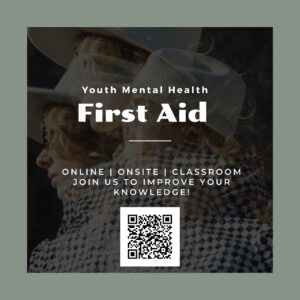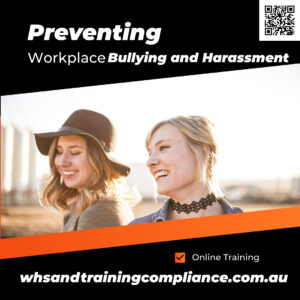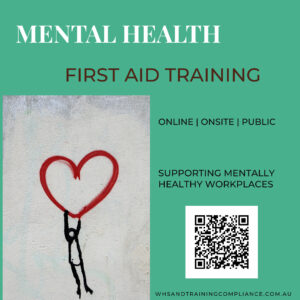What is self-care? What are the benefits of self-care? Self-care is the practice of engaging in activities and behaviors that promote physical, mental, and emotional well-being. It involves intentionally taking time to nurture and care for oneself, in order to maintain a healthy and balanced lifestyle. Self-care is not a one-size-fits-all approach, as it can vary greatly from person to person, depending on individual needs, preferences, and circumstances. Essentially, the term defines selfcare as a conscious act a person takes in order to make them feel good, mental, and emotional. It’s “a multidimensional, multifaceted process of purposeful engagement in strategies that promote healthy functioning and enhance well-being.”
As well, you could define selfcare as taking care of yourself using the information and knowledge you have. In collaboration with health and social care professionals, it empowers individuals to look after their own health efficiently and conveniently.
As far as selfcare goes, there are many forms it can take. It could be getting enough sleep every night or stepping outside for a few minutes.
Stressors in life can’t be eliminated, so self-care is crucial for building resilience. Living your best life comes when you take care of your mind and body.
At its core, self-care is about prioritizing your own needs and making conscious choices to support your overall well-being. It is a proactive and empowering process that can help individuals manage stress, improve mood, and enhance their quality of life. By incorporating self-care practices into their daily routines, individuals can foster greater self-awareness, resilience, and a deeper connection with themselves.
The Benefits of self-care for mental health
Maintaining good mental health is crucial for overall well-being, as it affects our thoughts, emotions, and behaviors. However, in today’s fast-paced and often overwhelming world, it can be easy to neglect our own needs in favor of work, family, or other obligations. This can lead to burnout, stress, and a decline in mental health.
Research has consistently shown that engaging in self-care practices can have a profound impact on mental health. By prioritizing self-care, individuals can reduce symptoms of anxiety, depression, and other mental health conditions, while also promoting feelings of calm, contentment, and resilience. Self-care can also help individuals better cope with life’s challenges, foster healthy relationships, and achieve a greater sense of purpose and fulfillment.
Self-care is a crucial aspect of maintaining overall well-being and should be prioritized in our busy lives. The benefits of self-care are numerous and can have a positive impact on our physical, mental, and emotional health. Firstly, taking time for ourselves allows us to recharge and replenish our energy levels. This can lead to increased productivity and better performance in our personal and professional lives. Additionally, self-care practices such as exercise, healthy eating, and getting enough sleep can improve our physical health and reduce the risk of chronic diseases. Moreover, self-care activities such as mindfulness or meditation can help reduce stress and anxiety, promoting better mental health. Overall, investing in self-care reaps long-term benefits that enhance our quality of life.
Having a good selfcare routine can benefit your health. These benefits of selfcare include:
- Reduce anxiety and depression
- Enhancing resilience and reducing stress
- Enhancing happiness
- Energy boosting
- Making burnout less of a problem
- Improved interpersonal relationships
There are lots of ways to practice selfcare, and many of them are free. Our goal is to remind you of some of the benefits of self-care and move them to the top of your list.
Cut back on social media use.
Results from The Millennium Cohort1 study have shown that young girls who spend more time using social media show stronger signs of depression compared to their less-using peers. This may be attributed to the feelings of inadequacy they contract from viewing glorified lifestyles and unrealistic standards of beauty. It’s recommended that young people channel their energies to hobbies, reading, and other productive activities rather than social media.
Maintain a healthy body clock.
Your mind is an extension of your body. Thus, its condition is highly dependent on how well you care for your physical health. Getting enough sleep should be a top priority because sleeping problems are probable factors of depression. According to a Harvard Health Publishing2, people with sleep problems have an increased risk of developing mental illnesses such as depression and anxiety. If you’ve been putting off sleep for internet, this is a sign that you need to cut back on both.
Meditate.
You may have already heard this in passing but it’s true what the gurus say— meditation can fortify the mind. Dr. Elizabeth Hoge from Harvard Medical School acknowledged the psychological benefits of mindfulness meditation in easing anxiety. Harvard Health Publishing3 narrates that in one of Dr. Hoge’s study a significant reduction of symptoms has been found in subjects who underwent a mindfulness-based meditation program. The good thing about meditation is that you can do it yourself. There are apps like Headspace and Aura that can help with this.
It’s important to come up with a selfcare plan that works for you. It has to be something you make for yourself. By creating your own self-care plan, you can prevent getting overwhelmed, overstressed, and burnt out.
Remember to take benefits of selfcare with a little grain of salt. Though selfcare provides young people with the resources to thrive in critical situations, it still isn’t enough especially in cases of trauma, self-harm, and
substance abuse. More intense cases require an elevated type of psychological help like Mental Health First Aid (MHFA), a relief provided by certified individuals until expert treatment is available.
Research-based self-care tips for taking care of yourself
Tip 1: Prioritizing physical well-being
Maintaining physical health is a crucial aspect of self-care. When we take care of our bodies, we can better support our mental and emotional well-being. Here are some research-based tips for prioritizing physical well-being:
- Engage in regular physical activity: Studies have shown that regular exercise can help reduce symptoms of depression and anxiety, improve mood, and boost overall mental health. Aim for at least 30 minutes of moderate-intensity physical activity, such as brisk walking, cycling, or swimming, most days of the week.
- Ensure adequate sleep: Insufficient sleep can have a significant impact on mental health, leading to increased stress, irritability, and difficulty concentrating. Strive for 7-9 hours of quality sleep each night by establishing a consistent sleep routine and creating a sleep-conducive environment.
- Nourish your body with a balanced diet: A healthy, nutrient-rich diet can support both physical and mental well-being. Incorporate a variety of whole, unprocessed foods, such as fruits, vegetables, whole grains, lean proteins, and healthy fats, to provide your body with the nutrients it needs to function optimally.
Tip 2: Nurturing emotional well-being
Emotional well-being is a crucial aspect of self-care, as it helps us manage our feelings, build healthy relationships, and maintain a sense of inner balance. Here are some research-based tips for nurturing emotional well-being:
- Practice mindfulness and meditation: Numerous studies have shown that mindfulness and meditation can help reduce stress, improve emotional regulation, and enhance overall well-being. Incorporate mindfulness practices, such as deep breathing exercises, body scans, or guided meditations, into your daily routine.
- Engage in self-reflection and journaling: Writing down your thoughts, feelings, and experiences can be a powerful tool for self-discovery, emotional processing, and personal growth. Set aside time each day to reflect on your inner experiences and document your journey.
- Cultivate supportive relationships: Strong social connections and a sense of belonging are essential for emotional well-being. Make time to nurture your relationships with family, friends, and loved ones, and seek out opportunities to engage in meaningful social interactions.
Tip 3: Cultivating a positive mindset
Our thoughts and beliefs can have a significant impact on our mental health and overall well-being. By cultivating a positive mindset, individuals can enhance their resilience, boost their mood, and foster a greater sense of well-being. Here are some research-based tips for cultivating a positive mindset:
- Practice gratitude: Numerous studies have shown that regularly expressing gratitude can increase feelings of happiness, life satisfaction, and overall well-being. Set aside time each day to reflect on the things you are grateful for, and consider keeping a gratitude journal.
- Reframe negative thoughts: Negative self-talk and rumination can contribute to poor mental health. Develop the habit of challenging negative thought patterns and reframing them in a more positive and constructive way.
- Set achievable goals: Establishing realistic and meaningful goals can provide a sense of purpose, motivation, and a sense of accomplishment. Break down larger goals into smaller, manageable steps, and celebrate your progress along the way.
Incorporating self-care into your daily routine
Incorporating self-care into your daily routine is crucial for maintaining a healthy and balanced lifestyle. It can be helpful to think of self-care as a non-negotiable aspect of your day, rather than an optional or occasional activity.
One effective way to incorporate self-care is to create a personalized self-care plan. This plan can include a mix of physical, emotional, and mental activities that you can integrate into your daily routine. For example, you might start your day with a mindfulness practice, followed by a healthy breakfast, a brisk walk during your lunch break, and a relaxing evening routine that includes journaling or reading.
Remember, self-care is not a one-size-fits-all approach, and it’s important to find what works best for you. Experiment with different self-care activities and be open to adjusting your plan as needed to ensure that it aligns with your unique needs and preferences.
Overcoming barriers to self-care
Despite the numerous benefits of self-care, individuals may face various barriers that make it challenging to prioritize their own needs. Some common barriers to self-care include:
- Lack of time: In our fast-paced world, it can be difficult to find the time to engage in self-care activities. To overcome this, consider incorporating small, manageable self-care practices into your daily routine, such as a short meditation or a quick walk during your lunch break.
- Feelings of guilt or selfishness: Some individuals may feel guilty or selfish for prioritizing their own needs, especially if they have family or work responsibilities. It’s important to remember that self-care is not a luxury, but a necessary component of a healthy and balanced life.
- Lack of resources or support: Access to self-care resources, such as mental health professionals or fitness facilities, may be limited for some individuals. In such cases, explore free or low-cost options, such as online resources, community programs, or virtual support groups.
By identifying and addressing these barriers, individuals can develop a more sustainable and effective self-care practice, ultimately leading to improved mental health and overall well-being.
Conclusion: Benefits of self-care
Engaging in self-care is a powerful and transformative process that can have a profound impact on an individual’s mental health and overall well-being. By prioritizing physical, emotional, and mental well-being, individuals can foster greater resilience, improve mood, and enhance their quality of life.
The research-based self-care tips outlined in this guide provide a comprehensive framework for taking care of oneself and cultivating a healthier, more balanced lifestyle. By incorporating these practices into their daily routines, individuals can unlock the true potential of self-care and experience the many benefits of self-care has to offer.
Discover the transformative power of self-care and start your journey towards improved mental health and well-being today. Implement the research-based tips from this guide and prioritize your own needs to create a more fulfilling and balanced life.
MHFA courses can be taken by parents, teachers, and healthcare professionals to understand a wide range of mental health crises, relate to young people’s emotional processes, and consequently deliver more effective assistance.
If you are interested in getting MHFA-accredited, talk to our representatives to sign up for an onsite MHFA or MHFA class near you. Call 07 5499 2406. We have regular classes scheduled in Townsville, Toowoomba, Cairns and Brisbane.
We also have onsite Mental Health First Aid training.
Contact us to schedule an onsite MHFA training. We are happy to travel across Australia for onsite MHFA. Read books about self-care?
Resources
1 Depression in girls linked to higher use of social media.
3 Mindfulness meditation may ease anxiety, mental stress. Harvard Health Publishing (2014).
Have you seen our onsite WHS training programs?
Access Mental Health Awareness Books from Amazon: Mental Health Books
We have short onsite WHS training programs:















